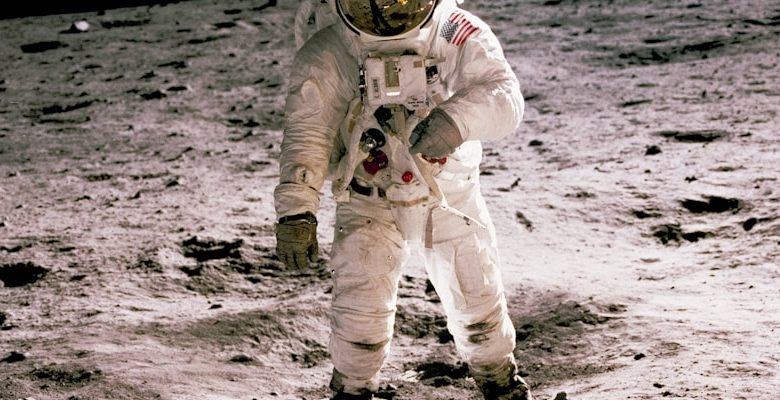Exploring the Potential of Space Colonization

- The Future of Humanity Beyond Earth
- Challenges and Opportunities of Colonizing Space
- Technological Innovations Driving Space Settlements
- Sustainability and Self-Sufficiency in Space Colonies
- Impacts of Space Colonization on Society and Culture
- Ethical Considerations in Expanding Beyond Our Planet
The Future of Humanity Beyond Earth
In the not-too-distant future, humanity may find itself venturing beyond Earth to explore and potentially colonize other planets. This exciting prospect opens up a realm of possibilities for the future of our species. As we continue to advance technologically and scientifically, the idea of space colonization is becoming more feasible.
One of the key motivations behind space colonization is the need to ensure the long-term survival of humanity. By establishing colonies on other planets, we can create a backup plan in case something catastrophic were to happen to Earth. This would help to safeguard the future of our species and ensure that we continue to thrive for generations to come.
Furthermore, space colonization could lead to incredible advancements in science and technology. The challenges of living in space would require us to develop new technologies and solutions to overcome obstacles such as limited resources, harsh environments, and communication delays. These innovations could have far-reaching benefits for society as a whole.
Additionally, space colonization could open up new economic opportunities. The resources found on other planets, such as rare minerals or water, could be valuable commodities that drive new industries and create jobs. The expansion of humanity beyond Earth could also lead to new markets and trade opportunities that benefit both Earth and space-based economies.
Overall, the future of humanity beyond Earth holds immense potential for growth, discovery, and progress. By exploring the possibilities of space colonization, we can pave the way for a brighter future for our species and unlock new opportunities that we have yet to imagine.
Challenges and Opportunities of Colonizing Space
As we look towards the future of space colonization, it is important to consider both the challenges and opportunities that come with this ambitious endeavor. Colonizing space presents a unique set of obstacles, such as the harsh conditions of space, the need for sustainable resources, and the potential psychological effects on colonists. However, it also offers a wealth of opportunities, including the chance to expand humanity’s reach beyond Earth, the potential for scientific discovery, and the opportunity to create new economic and social systems.
One of the biggest challenges of space colonization is the harsh environment of space itself. Colonists will have to contend with extreme temperatures, high levels of radiation, and microgravity, all of which can have a detrimental impact on human health. Finding ways to mitigate these effects and create a safe and habitable environment for colonists will be crucial to the success of any space colonization effort.
Another challenge is the need for sustainable resources in space. Unlike on Earth, where we can rely on a vast array of natural resources, colonists in space will have to find ways to produce food, water, and other essentials in a closed-loop system. Developing technologies to recycle waste products, generate energy, and sustain life in a resource-constrained environment will be essential for the long-term viability of space colonies.
In addition to these practical challenges, space colonization also presents psychological challenges. Colonists will have to contend with long periods of isolation, confinement, and separation from loved ones, which can take a toll on mental health. Finding ways to support the mental well-being of colonists, through social connections, entertainment, and mental health resources, will be crucial to ensuring the success of space colonization missions.
Despite these challenges, space colonization also offers a wealth of opportunities. By expanding humanity’s reach beyond Earth, we can ensure the survival of our species in the face of potential disasters on our home planet. Space colonization also offers the potential for scientific discovery, allowing us to study new environments, conduct experiments in microgravity, and unlock the secrets of the universe.
Furthermore, space colonization presents new economic and social opportunities. By establishing colonies in space, we can create new markets for goods and services, develop new industries, and foster international cooperation. Space colonization also offers the chance to create new social systems, based on principles of sustainability, equality, and inclusivity, that can serve as a model for a better future for all of humanity.
Technological Innovations Driving Space Settlements
Technological advancements are playing a crucial role in driving the potential for space settlements. These innovations are opening up new possibilities for humans to establish colonies beyond Earth. Some of the key technological developments that are shaping the future of space colonization include:
- 1. **Space Travel**: Breakthroughs in propulsion systems and spacecraft design are making interplanetary travel more feasible. This is crucial for transporting resources and people to distant planets.
- 2. **Life Support Systems**: Advances in life support technology are enabling humans to survive in the harsh conditions of space for extended periods. This includes systems for oxygen generation, waste recycling, and food production.
- 3. **3D Printing**: The ability to 3D print tools, equipment, and even habitats using local resources found on other planets reduces the need to transport everything from Earth. This can significantly lower the cost and complexity of space missions.
- 4. **Robotics**: Autonomous robots are essential for performing tasks in the challenging environment of space. They can assist humans in building structures, conducting experiments, and exploring new territories.
- 5. **Communication**: High-speed, reliable communication networks are essential for coordinating activities between Earth and space settlements. Advancements in satellite technology ensure seamless connectivity for colonists.
These technological innovations are revolutionizing the way we think about space exploration and colonization. By leveraging these advancements, humans can overcome the challenges of living in space and pave the way for a sustainable future beyond our home planet.
Sustainability and Self-Sufficiency in Space Colonies
One key aspect of space colonization is the focus on sustainability and self-sufficiency. In order for colonies to thrive in the harsh environment of space, it is essential that they are able to produce their own resources and minimize their reliance on Earth. By implementing sustainable practices and developing technologies that allow for self-sufficiency, space colonies can increase their chances of long-term success.
One way in which space colonies can achieve sustainability is through the use of renewable energy sources. Solar power, for example, is abundant in space and can be harnessed to provide colonies with a reliable source of energy. By utilizing solar panels and other renewable energy technologies, colonies can reduce their dependence on finite resources and ensure a continuous power supply.
In addition to renewable energy, space colonies can also focus on recycling and reusing resources. Water, for example, is a crucial resource for human survival, and in space, it is not readily available. By implementing water recycling systems and developing technologies for extracting water from other sources, colonies can ensure a sustainable supply of this essential resource.
Furthermore, space colonies can also explore the possibility of growing their own food. Hydroponic and aeroponic farming techniques can be used to cultivate crops in the controlled environment of a space colony. By growing their own food, colonies can reduce their reliance on Earth for supplies and create a more self-sufficient food system.
Overall, sustainability and self-sufficiency are crucial aspects of space colonization. By focusing on renewable energy, resource recycling, and food production, colonies can increase their chances of long-term success in the challenging environment of space.
Impacts of Space Colonization on Society and Culture
Space colonization has the potential to revolutionize society and culture in numerous ways. As humans venture beyond Earth and establish colonies on other planets, the impacts on our way of life will be profound. Here are some of the key ways in which space colonization could shape society and culture:
- Technological Advancements: The pursuit of space colonization will drive innovation and technological advancements in various fields. From advanced propulsion systems to sustainable living habitats, the technologies developed for space exploration will have far-reaching implications for society.
- Global Collaboration: Space colonization will require unprecedented levels of international cooperation. Countries around the world will need to work together to overcome the challenges of colonizing other planets, fostering a sense of global unity and cooperation.
- Cultural Exchange: As humans establish colonies on other planets, new cultures and ways of life will emerge. This cultural diversity will enrich our understanding of the world and promote cross-cultural exchange on a planetary scale.
- Environmental Sustainability: The technologies developed for space colonization, such as closed-loop life support systems, could have applications on Earth as well. By learning to live sustainably in space, we may discover new ways to protect and preserve our own planet.
- Expansion of Consciousness: Space colonization will push the boundaries of human experience and expand our understanding of the universe. This sense of awe and wonder could lead to a reevaluation of our place in the cosmos and our relationship to the world around us.
Overall, the impacts of space colonization on society and culture are likely to be far-reaching and transformative. By venturing into the unknown reaches of space, humanity has the opportunity to redefine itself and shape a new future for generations to come.
Ethical Considerations in Expanding Beyond Our Planet
When considering the expansion of human civilization beyond our planet, it is crucial to take into account the ethical implications of such a monumental endeavor. Space colonization raises a myriad of ethical considerations that must be carefully thought out and addressed to ensure the well-being of both humans and any potential extraterrestrial life forms.
- One of the primary ethical considerations is the impact that space colonization may have on the environment of other planets or celestial bodies. It is essential to minimize any negative effects on the natural ecosystems that may exist beyond Earth.
- Another important ethical consideration is the potential exploitation of resources on other planets. Care must be taken to ensure that any resource extraction is done in a sustainable and responsible manner that does not deplete or harm the environment.
- Additionally, the issue of governance and jurisdiction in space colonization must be carefully considered. Questions of ownership, law enforcement, and political representation in off-planet settlements must be addressed to prevent conflicts and ensure the fair treatment of all individuals involved.
- Furthermore, the ethical implications of potential conflicts between different space-faring nations or corporations must be taken into account. It is essential to promote cooperation and diplomacy in the exploration and colonization of space to avoid any unnecessary hostilities or power struggles.
In conclusion, the ethical considerations in expanding beyond our planet are complex and multifaceted. It is crucial to approach space colonization with a strong sense of responsibility and mindfulness towards the potential consequences of our actions. By carefully considering these ethical issues, we can ensure that the exploration and colonization of space are conducted in a way that is respectful, sustainable, and beneficial for all parties involved.



